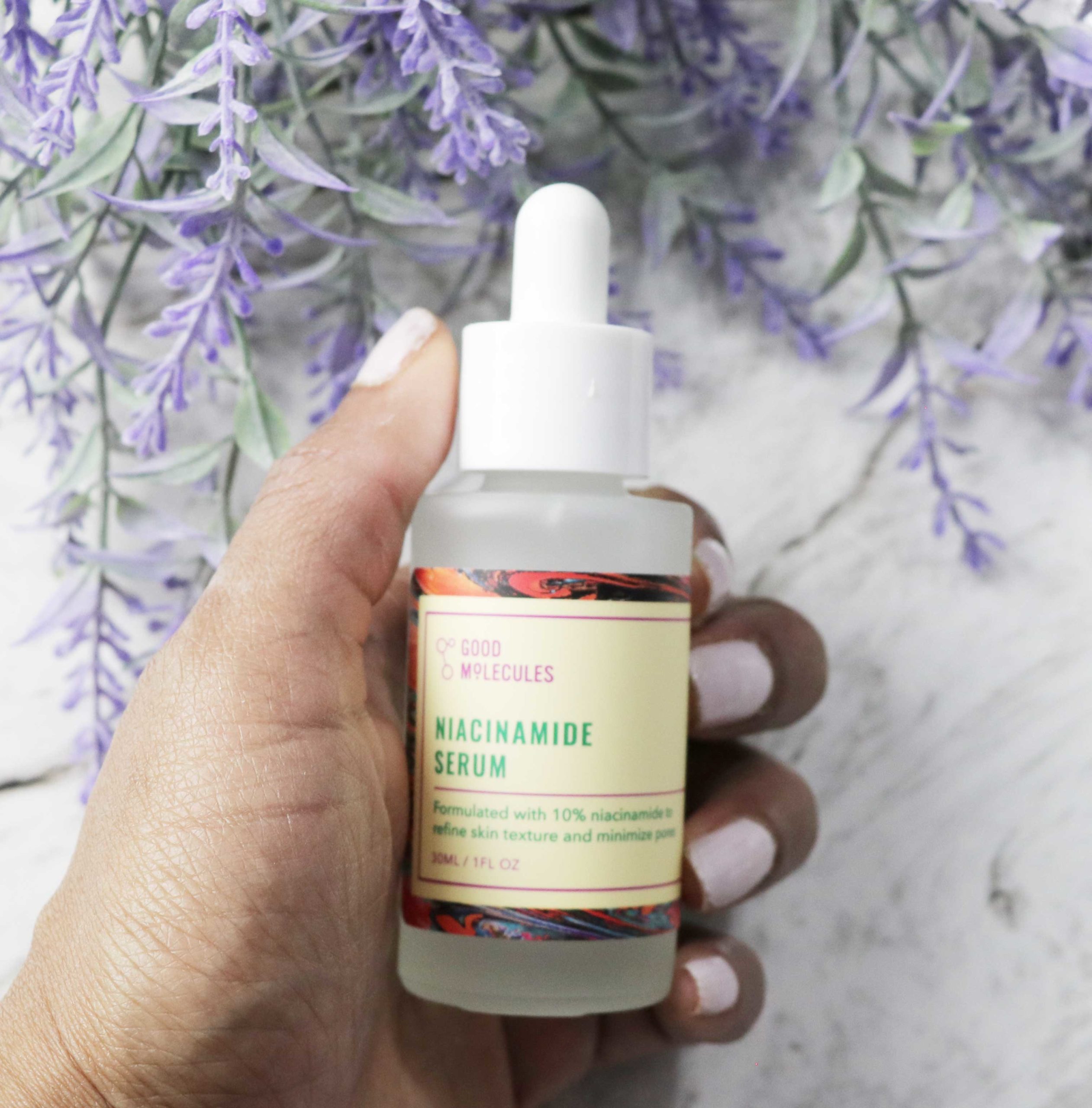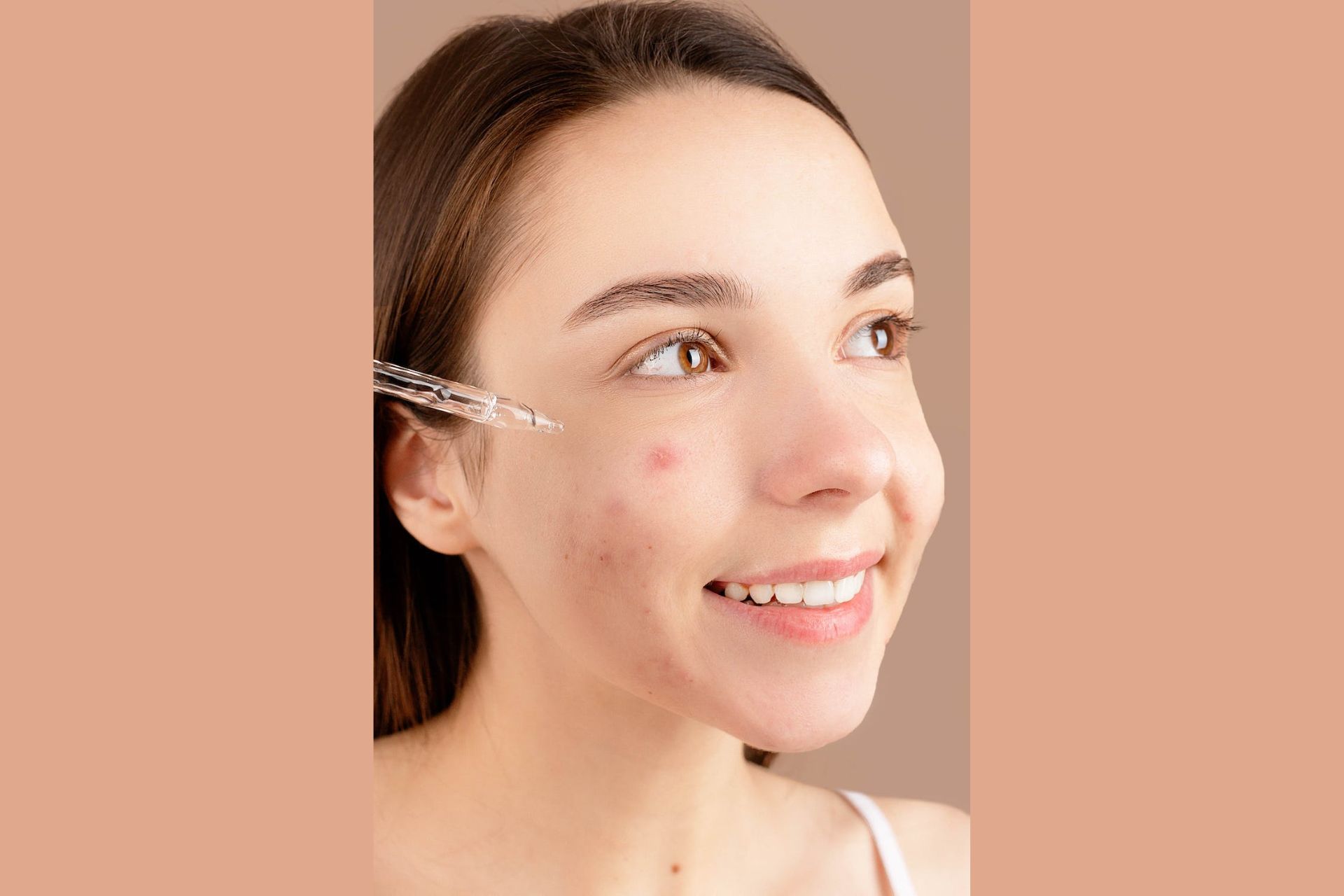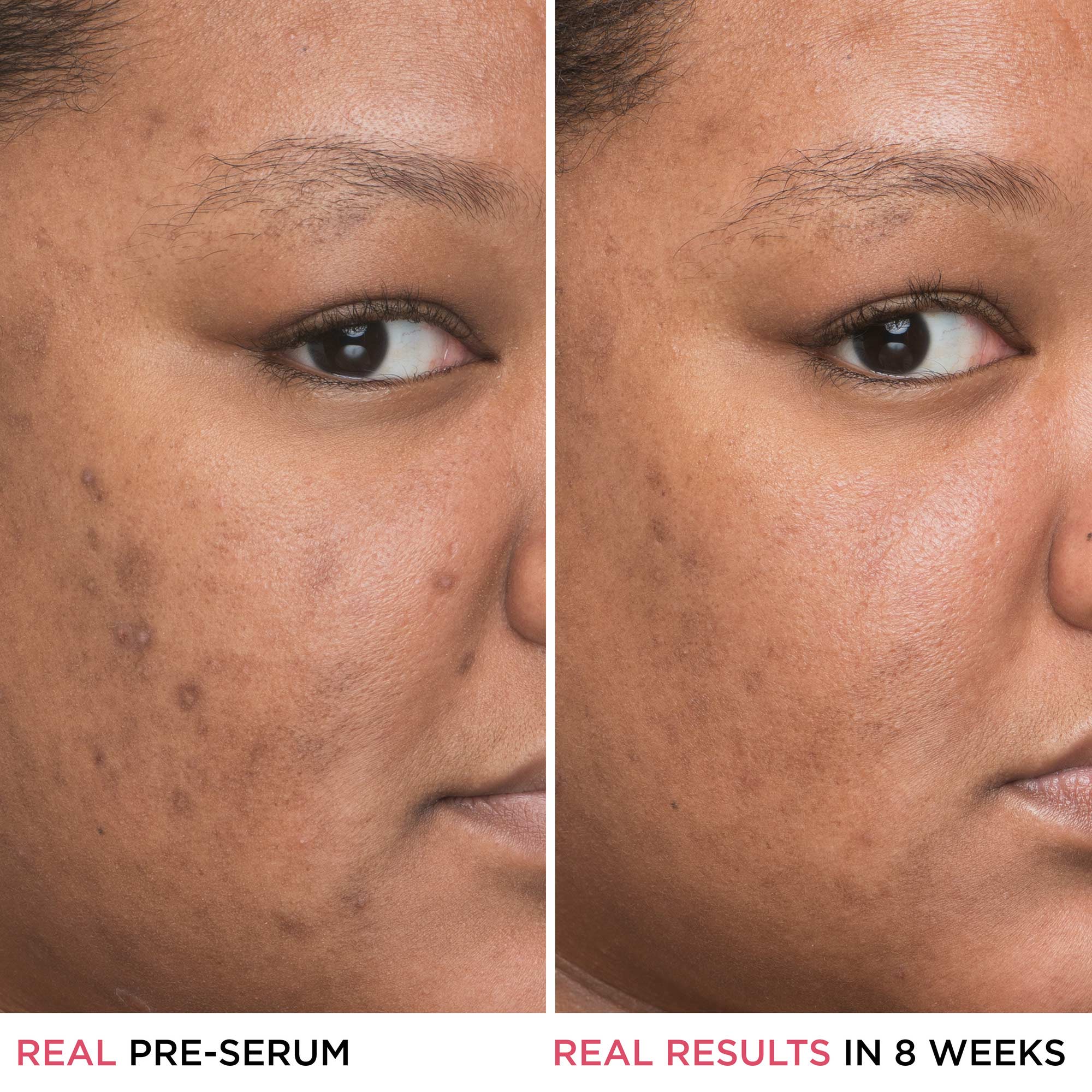Let’s be honest—sensitive skin can feel like a battlefield sometimes. One day it’s glowing and the next, it’s red, irritated, and screaming for help. But what if there’s a skincare superhero out there that can save the day? Enter niacinamide, the ingredient everyone’s talking about. But is niacinamide good for sensitive skin? Let’s dive into this burning question and find out why this wonder ingredient might just become your new best friend.
First things first, if you’ve ever dealt with redness, uneven skin tone, or constant irritation, you know how tricky it is to find products that actually work without making things worse. Sensitive skin needs gentle care, but that doesn’t mean you have to skip out on powerful ingredients. That’s where niacinamide comes in. It’s like the Swiss Army knife of skincare—it does a little bit of everything, and it’s super friendly to even the most temperamental skin types.
Now, before we get too deep into the science, let me tell you something important: niacinamide isn’t just another buzzword in the beauty world. It’s backed by real research and has been proven to work wonders for a variety of skin concerns. So whether you’re dealing with redness, breakouts, or just plain old irritation, this could be the solution you’ve been waiting for.
- March 30 Zodiac Aries Rising Ndash Bold Ambitious And Ready To Shine
- Merry Christmas African American Images Celebrate The Spirit Of Diversity
Understanding Sensitive Skin
Before we jump into niacinamide, let’s take a step back and talk about sensitive skin. What exactly does it mean to have sensitive skin, anyway? Well, it’s not just about having a few red patches here and there. Sensitive skin is often characterized by reactions to certain products, environmental factors, or even stress. You might notice redness, itching, burning, or even peeling skin when things go south.
Here’s the kicker: sensitive skin doesn’t always look the same. Some people deal with chronic redness, while others might experience flare-ups only during certain seasons or after using specific products. The key is understanding your skin’s triggers and finding ingredients that calm it down instead of making it worse.
Common Signs of Sensitive Skin
Not sure if you have sensitive skin? Here are a few telltale signs:
- Is Rebel Wilson A Lesbian Exploring The Question In A Fun Informal Way
- Fox Crash Game The Ultimate Guide To Adventure And Fun
- Redness that doesn’t go away easily
- Itching or burning sensations after using products
- Peeling or flaky skin
- Breakouts or irritation from fragrances or harsh chemicals
- General discomfort or tightness, especially after washing
Sound familiar? If so, you’re definitely not alone. Millions of people around the world deal with sensitive skin, and finding the right skincare routine can feel like solving a puzzle. But don’t worry—we’ve got you covered.
What is Niacinamide and How Does It Work?
Niacinamide, also known as vitamin B3, is a water-soluble vitamin that’s been making waves in the skincare world. But what exactly is it, and why should you care? Simply put, niacinamide is a powerhouse ingredient that works on multiple levels to improve the health and appearance of your skin.
Here’s how it works: niacinamide helps strengthen the skin barrier, which is the protective layer that keeps moisture in and irritants out. When your skin barrier is compromised, you’re more likely to experience dryness, irritation, and even breakouts. Niacinamide steps in to repair and reinforce this barrier, making your skin more resilient over time.
Key Benefits of Niacinamide
So, what can niacinamide do for your skin? Let’s break it down:
- Reduces redness: Niacinamide helps calm inflammation and even out your skin tone, making it perfect for sensitive or acne-prone skin.
- Improves hydration: By strengthening the skin barrier, niacinamide helps lock in moisture and prevent dryness.
- Fights acne: This ingredient has antibacterial properties that can help reduce breakouts and prevent future ones.
- Smooths fine lines: Niacinamide boosts collagen production, which can help reduce the appearance of fine lines and wrinkles.
- Even skin tone: Whether you’re dealing with dark spots, hyperpigmentation, or uneven tone, niacinamide can help brighten and clarify your complexion.
See what I mean? Niacinamide is kind of like a one-stop shop for all your skincare needs.
Is Niacinamide Safe for Sensitive Skin?
This is the million-dollar question, right? The good news is that niacinamide is generally considered safe and effective for sensitive skin. Unlike some other active ingredients, it doesn’t cause irritation or dryness when used properly. In fact, it’s often recommended for people with sensitive or reactive skin because of its soothing properties.
That said, it’s always a good idea to patch test any new product before slathering it all over your face. Start with a small area of skin and wait 24 hours to see how your skin reacts. If everything looks good, you’re good to go!
Why Niacinamide is Gentle on Sensitive Skin
Here’s why niacinamide is such a great choice for sensitive skin:
- It’s non-comedogenic, meaning it won’t clog your pores.
- It doesn’t cause photosensitivity, so you don’t have to worry about extra sun protection.
- It’s fragrance-free and hypoallergenic, reducing the risk of irritation.
- It works well with other ingredients, so you can layer it without worrying about negative reactions.
Basically, niacinamide is like the ultimate team player in your skincare routine.
How to Incorporate Niacinamide into Your Routine
Ready to give niacinamide a try? Here’s how to add it to your skincare routine without causing any drama:
Start by cleansing your face with a gentle, fragrance-free cleanser. Then, apply a serum or moisturizer containing niacinamide. If you’re new to the ingredient, start with a lower concentration (around 2-4%) and work your way up as your skin adjusts. Follow with sunscreen during the day and a rich moisturizer at night.
Best Niacinamide Products for Sensitive Skin
Not all niacinamide products are created equal, so here are a few top picks that are gentle enough for sensitive skin:
- The Ordinary Niacinamide 10% + Zinc 1%: A budget-friendly option that’s packed with skin-loving ingredients.
- CeraVe PM Facial Moisturizing Lotion: Combines niacinamide with ceramides to repair and hydrate the skin barrier.
- Paula’s Choice 10% Niacinamide Booster: A concentrated serum that tackles multiple skin concerns at once.
Remember, everyone’s skin is different, so what works for one person might not work for another. Always do your research and patch test before committing to a new product.
Combining Niacinamide with Other Ingredients
One of the best things about niacinamide is how well it plays with others. You can layer it with a variety of other skincare ingredients to target specific concerns. Here are a few combos to try:
- Niacinamide + Vitamin C: A dynamic duo for brightening and protecting your skin.
- Niacinamide + Hyaluronic Acid: Double the hydration with this powerhouse pair.
- Niacinamide + Retinol: A game-changer for anti-aging and texture improvement.
Just remember to introduce new products slowly to avoid overwhelming your skin.
Things to Watch Out For
While niacinamide is generally safe, there are a few things to keep in mind:
- Avoid combining it with acidic ingredients like AHAs or BHAs, as this can lower the pH and reduce its effectiveness.
- Always patch test new products, even if they contain niacinamide.
- Stick to products with a concentration of 2-10% niacinamide for best results.
By following these guidelines, you can maximize the benefits of niacinamide without causing any unnecessary irritation.
Real Results: What the Science Says
Don’t just take my word for it—let’s talk about the science behind niacinamide. Numerous studies have shown that niacinamide can improve skin hydration, reduce inflammation, and even out skin tone. One study published in the Journal of Clinical and Aesthetic Dermatology found that niacinamide significantly reduced redness and improved skin barrier function in people with sensitive skin.
Another study published in Clinical, Cosmetic and Investigational Dermatology showed that niacinamide improved fine lines, hyperpigmentation, and overall skin texture in just 12 weeks. Pretty impressive, right?
Expert Opinions on Niacinamide
Experts in the skincare world are also big fans of niacinamide. Dermatologists like Dr. Joshua Zeichner and Dr. Patricia Wexler frequently recommend it to their patients with sensitive or acne-prone skin. According to Dr. Zeichner, “Niacinamide is one of the most versatile ingredients in skincare. It’s gentle enough for sensitive skin but powerful enough to deliver real results.”
So, if the experts are on board, you know you’re onto something good.
Tips for Maximizing Niacinamide’s Benefits
Ready to get the most out of your niacinamide products? Here are a few tips to keep in mind:
- Use it consistently—twice a day if possible—for best results.
- Layer it with hydrating ingredients like hyaluronic acid to boost its effectiveness.
- Don’t forget sunscreen during the day to protect your skin from UV damage.
- Be patient—it can take a few weeks to see noticeable improvements.
Remember, skincare is a journey, not a destination. Stick with it, and you’ll start to see the difference in no time.
Common Mistakes to Avoid
Here are a few mistakes to watch out for when using niacinamide:
- Using too much too soon—start with a lower concentration and work your way up.
- Combining it with harsh acids or exfoliants, which can irritate sensitive skin.
- Forgetting sunscreen, which can undo all the good work niacinamide is doing.
By avoiding these pitfalls, you can make the most of your niacinamide routine.
Conclusion: Is Niacinamide Worth It for Sensitive Skin?
So, is niacinamide good for sensitive skin? The answer is a resounding yes. Whether you’re dealing with redness, breakouts, or just plain old irritation, niacinamide can help calm and repair your skin without causing any unnecessary drama. And with its wide range of benefits, it’s no wonder this ingredient has become a staple in so many skincare routines.
Ready to give it a try? Start with a gentle serum or moisturizer and see how your skin responds. And don’t forget to share your results with us in the comments below—we’d love to hear how niacinamide is working for you!
Table of Contents
- Understanding Sensitive Skin
- What is Niacinamide and How Does It Work?
- Is Niacinamide Safe for Sensitive Skin?
- How to Incorporate Niacinamide into Your Routine
- Combining Niacinamide with Other Ingredients
- Real Results: What the Science Says
- Tips for Maximizing Niacinamide’s Benefits
- Conclusion: Is Niacinamide Worth It for Sensitive Skin?
- Why Witt Rec Center Is The Ultimate Spot For Fitness And Fun
- Peeping Joi A Deep Dive Into The World Of Joi Content


